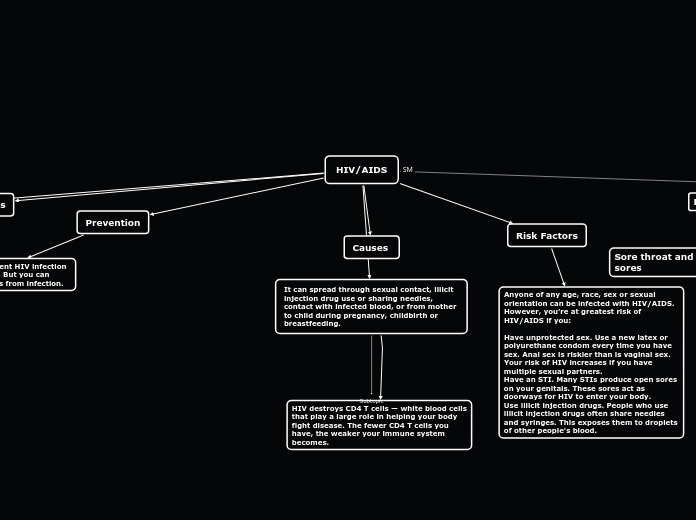HIV/AIDS
Acquired immunodeficiency syndrome (AIDS) is a chronic, potentially life-threatening condition caused by the human immunodeficiency virus (HIV). By damaging your immune system, HIV interferes with your body's ability to fight infection and disease. HIV is a sexually transmitted infection (STI).
Prevention
There's no vaccine to prevent HIV infection and no cure for HIV/AIDS. But you can protect yourself and others from infection.
Consider preexposure prophylaxis (PrEP)
Risk Factors
Anyone of any age, race, sex or sexual orientation can be infected with HIV/AIDS. However, you're at greatest risk of HIV/AIDS if you:
Have unprotected sex. Use a new latex or polyurethane condom every time you have sex. Anal sex is riskier than is vaginal sex. Your risk of HIV increases if you have multiple sexual partners.
Have an STI. Many STIs produce open sores on your genitals. These sores act as doorways for HIV to enter your body.
Use illicit injection drugs. People who use illicit injection drugs often share needles and syringes. This exposes them to droplets of other people's blood.
It can spread through sexual contact, illicit injection drug use or sharing needles, contact with infected blood, or from mother to child during pregnancy, childbirth or breastfeeding.
HIV destroys CD4 T cells — white blood cells that play a large role in helping your body fight disease. The fewer CD4 T cells you have, the weaker your immune system becomes.
Subtopic
Disease/ Virus
Symptoms
Fever
Headache
Muscle aches and joint pain
Rash
Sore throat and painful mouth sores
Swollen lymph glands, mainly on the neck
Diarrhea
Weight loss
Cough
Night sweats
